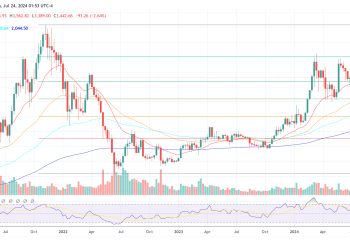Significant Stablecoin Adoption Could Result in “Excessive Market Power,” says BIS Report on CBDC
Central bank money ensures public trust in money and supports public welfare, said the global body policymaker in its latest report on central bank digital currencies (CBDCs).
With new forms of digital money issued by the private sector, such as stablecoins emerging, which has accelerated since the Covid-19 pandemic began, central banks are also ensuring they are able to respond to a digital future system, it said.
But still, private digital assets can coexist with central bank digital currencies, the Bank for International Settlements said in the report, noting CBDcs would rely on banks and other financial institutions to act as intermediaries.
However, significant stablecoin adoption could lead to fragmentation in the payments ecosystem and “excessive market power,” found the report. It further added that private initiatives would have “lower public benefits” because they won’t be interchangeable with other forms of money. According to the BIS, private currencies also lack the protections that come with national currencies.
“Central banks have a responsibility to ensure that citizens have access to the safest form of money — central bank money — in the digital age,” said ECB president Christine Lagarde, who is the chair of this group of central bank governors.
While acknowledging that there were also risks associated with CBDCs, as money and payments develop rapidly, central banks’ plans for CBDC will also evolve, it said.
Currently, seven central banks, the Federal Reserve, Bank of England, European Central Bank, the Bank of Canada, Bank of Japan, Sveriges Riksbank, and Swiss National Bank, are working together with the BIS on retail CBDCs.
These central banks “have already identified that a CBDC could be an important instrument for ensuring that they can continue delivering their public policy objectives even as the financial system evolves,” the study said.
Facilitating international payments with CBDCs would require interoperability or cooperation, where BIS says the IMF would have an important role to play.



















